Observations: Speculating Faith
In the interest of a prelude, before Christmas I wrote a piece called Inherently 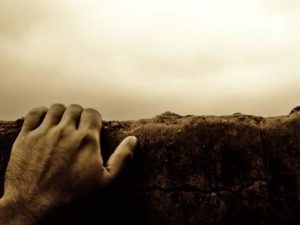 Religious, in which I argued that some events and symbolism are by nature religious, and, therefore, they cannot properly be used in any other way – thus, to secularize Christmas is to make Christmas not exist. In its place we have the deification of Saint Nick – poor god as he may be.
Religious, in which I argued that some events and symbolism are by nature religious, and, therefore, they cannot properly be used in any other way – thus, to secularize Christmas is to make Christmas not exist. In its place we have the deification of Saint Nick – poor god as he may be.
I offer that entry as something as a reference point so this one won’t seem totally off the wall. For those who don’t know or remember, I’m a late-comer to this entire genre. It’s become something of a comfort to me, because the speculative genre allows me to stand in the doorway between the spirit world and the flesh world and peer at both, lift the veil and gaze in wonder at the greater reality that surpasses our mortal senses. That’s the draw, for me. Not so much aliens or elves as much as making tangible that which is intangible–that which is no less real but just beyond my ability to hear, see, touch, and taste.
Striking, really.
So I find it a little odd when I see the speculative crowd getting hammered…for speculating. Maybe I’m an overeager audience, or simply undaunted by halftruths in fiction, or care more about the treatment of a concept than the concept itself, but I can’t help but wonder: Shouldn’t our genre, the speculative genre, be the safest place in the world to explore every possible “what if”?
What-if games are dangerous, to be certain. It’s a fine line between exploring the thing that isn’t and promoting it. But of all people, spec-fic writers should be unafraid to treat the dangerous questions.
For instance, I really don’t think people really realize how good we’ve got it, how much worse things could be. The guy who asks “How could a good God let X happen?” clearly doesn’t understand the nature and character of God. And in this culture of illustrations and visual learning, it may behoove us to engage the ramifications of such a question. How different would the world look if God were malicious? What would he be like? What would life on earth be like? Or what if he weren’t completely sovereign; or what if he were a tyrant? What if he didn’t know the future?
What if he carelessly left us to our own devices, the whole lot of this human race? (Amplify Bruce Almighty by about 6 billion and that might be a start.)
What if.
 They wouldn’t be pretty books, that’s for certain. Yes, I very much prefer God’s character drawn as accurately as possible or left off the table. But what I’m suggesting is that part of being made in the image of God is that we still have something of his thumb print left on our souls.
They wouldn’t be pretty books, that’s for certain. Yes, I very much prefer God’s character drawn as accurately as possible or left off the table. But what I’m suggesting is that part of being made in the image of God is that we still have something of his thumb print left on our souls.
As a result, unless our consciences are seared, something in us recoils against injustice and oppression–even if we only recognize it when we’re the victims. And either we reject it or embrace it as a weapon to dominate.
I can’t help but think that a dark world with a cruel god would be a morbid one indeed. Truly Heaven would have become Hell.
Like I said, my former entry contains the frame of reference. In it, I surmised that Santa was, in effect, the “god” of various Christmas movies. (For those who didn’t like my poke at Elf – please note that really does mean we should all strive to be Buddy: A true man of faith and an evangelist who comes back with converts. Of course, it also means that the Naughty List is the equivalent of Hellfire and Damnation. ) A deistic, karma-based religion, but hey. Flip it around and you’ve got a very real idea of what the world would be like if God were little more than something out of someone’s pantheon and in the end it was up to us to get back in his good graces. On the Nice List.
Makes me think of a song a friend of mine wrote:
Good people
Die every day
Some did not
Find their way
So close
And yet so far
So close
But no cigar
Went to church
All the time
Never did
Commit a crime
Had no time
To kneel and pray
Put it off
For another day
Another day may never come do not count on your good deeds
Because no one is perfect and no one is worthy
Do not think that you can slip on by
Let me tell you the reason why
Hell is for good people just like me
My sin nailed God’s son upon the tree
Hell is for good people just like you
And all who said one thing untrue
Helped people
All the time
Gave money
To the blind
Went to church
Twice a year
You said you listened
But did you hear?
For God so loved the world that He gave his one and only son
He hung upon the cross and bled for all your sins / every one
He rose again on the third day
So that you might; you might be saved … because
Hell is for good people….
[Hell is For Good People © 2005 Midiboy Music
Music / Lyrics: Gregg Hart]
Speculate what God is not, in other words. Imagine the world as it isn’t.
I think on some level there has to be some separation between what the author 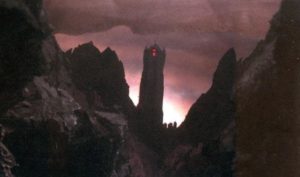 believes and what the characters believe. I don’t, for instance, believe that if I don’t pray every three hours God will kick me out of heaven. I have a character who does, though. I don’t believe we lose our salvation, but I have a character who is convinced that if he commits one sin he’s out – forever. And that belief is never challenged. I’m sure someone will point out to me that that isn’t true. I suppose I should set up a canned response that says, “I know.” 0=)
believes and what the characters believe. I don’t, for instance, believe that if I don’t pray every three hours God will kick me out of heaven. I have a character who does, though. I don’t believe we lose our salvation, but I have a character who is convinced that if he commits one sin he’s out – forever. And that belief is never challenged. I’m sure someone will point out to me that that isn’t true. I suppose I should set up a canned response that says, “I know.” 0=)
It’s just a thought. I know many who won’t write certain things because they’re worried about promoting heresy, but I think unless those things are adequately explored, people are less likely to understand why those things are false.































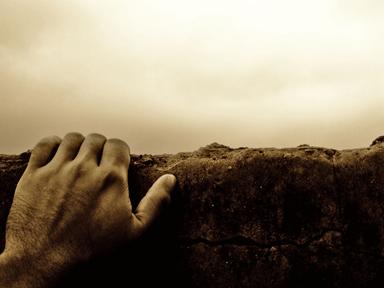

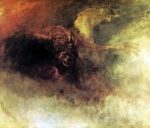
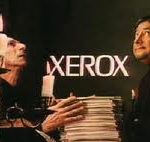


I think there is definitely a latitude for exploring those questions. However, there is a line where exploring what the world would be like if God were malicious without ever differentiating that this malicious God is not the real God (I believe that particular theme is explored in Philip Pullman’s His Dark Materials). In the end, our meaning needs to be clear to the reader. The real God isn’t like that. I believe somewhere in our stories there should be truth. Or else we can run the risk of confusing our readers.
Yeah, but Pullman’s goal in life is to destroy the Catholic Church and theism in general, and he’s not shy about saying so. He wrote Dark Materials to be an antithesis to the Chronicles of Narnia, which he hates, and he’s not shy about saying that either. I think there’s a world of difference between an atheist trying to attack the Church, Christianity, and faith, and a Christian exploring beliefs they know aren’t true in order to understand better what -is- true. Anyway, as I said to Kaci elsewhere, I think a clever storyteller can show a belief or way of life to be false (or at least worthless) without overtly attacking or dismantling it in the story. Mark Twain did in Huckleberry Finn.
Great column, Kaci — it was the first thing I read this morning!
Indeed, Morgan, and I think this is one of the parameters Christians should follow as they are exploring other speculations to which God’s Word would not be closed. That should not be because we feel constrained by some kind of rule, but because we don’t want to deny, even implicitly in a story, some truth that God has shown to us, because we love Him. Moreover, we may not (or should not) see the point in such a deviation.
One of the best examples of this comes from C.S. Lewis’s novel Perelandra, in which a former scientist, who has fallen into Satanic mysticism, is seemingly possessed by the Devil and comes to an Eden-like planet to tempt the “Eve” equivalent of that world:
In her innocent, the Lady is confused by the Un-Man’s encouragement to “make [a] Story” about something she knows her Creator, Maleldil, would forbid in real life. Finally the Lady, with help from the story’s hero Dr. Ransom, stumbles upon a profound line of reasoning against the Un-Man (which soon forces him to change strategies):
A couple of years ago I explored more of this in C.S. Lewis and the forbidden fruits of fiction (that’s where I copied these quotes, when I copied them there from the book).
Other negative examples, of course, include the infamous The Shack, which “speculates” far outside Biblical parameters — as if its author does not care about “Maleldil” and feels fine with writing a story about “living on the fixed land,” contrary to “Maleldil’s” revealed will, as long as the higher goal of Fighting Legalism is held.
(By the way, despite my criticism I am trying to get hold of a copy of The Shack for research into pop-evangelical miscolorings of God, so if anyone has a copy he/she would like to get rid of, do let me know; perhaps we can arrange something!)
Thought provoking post. I think you’re on to something Kaci. We can learn by negative example as well as by positive example.
What Pullman did was call the church and God evil and call Satan good. But that’s not what I think you mean, Kaci. I think you mean we can paint a world run by by petty Greek gods (or something of the sort) and see how we like that place, and that might make us less apt to call the real, loving God of the Bible an ogre when he exercises justice. Am I understanding you?
Stephen, I have a copy of The Shack but mine is all underlined and has notes in the margins, (mostly, “ugh” ) and I don’t think I can part with it. 🙂
While I’d love to see that, mostly for the tragicomic impact, I completely understand!
Morgan and Sally – As far as Pullman goes, the irony with that trilogy is how much discussion on God’s nature he’s fostered as a result. Elf wasn’t really trying to promote a “karma god” either, but it too fostered discussion on what God is like. Or isn’t like. But since Elf didn’t have theology in mind and His Dark Materials, evidently (sorry, I really don’t know much beyond not liking Golden Compass as a kid), was hostile in intent, neither come from that “what if” vein. I do think that the irony with Pullman stands on its own, however.
But that’s not what I think you mean, Kaci. I think you mean we can paint a world run by by petty Greek gods (or something of the sort) and see how we like that place, and that might make us less apt to call the real, loving God of the Bible an ogre when he exercises justice. Am I understanding you?
Yes ma’am. Consider this: I honestly could barely stomach the Iliad and the Odyssey (or Ovid’s Metomorphosis, for that matter) because the Greco-Roman gods could easily make me a very hostile theist (re: a person who believes the gods exist and despises them). I have an irrational hatred for them.
However, I really, really enjoyed C.S. Lewis’ Till We Have Faces, which twists an old myth and explores the nature of the divine.
However, there is a line where exploring what the world would be like if God were malicious without ever differentiating that this malicious God is not the real God (I believe that particular theme is explored in Philip Pullman’s His Dark Materials). In the end, our meaning needs to be clear to the reader. The real God isn’t like that.
I suppose in a theoretical world where a Christian took His Dark Materials and rewrote them, the treatment would be more clearly experimental. But a Christian author would be more likely to include a character who points out the emperor is naked, so to speak. It’d be a bit more thematic, depending on the ability of the author to craft a plausible story where the malicious god is unveiled as a fraud. Course…there’s also The Wizard of Oz…
Actually, one writer who tackled God’s nature (whether she meant to or not) superbly is Karen Hancock. She did it in Light of Eidon, and she did it again in The Enclave.
I believe somewhere in our stories there should be truth. Or else we can run the risk of confusing our readers.
I agree with you on that, but I’m also going to be a bit of a goober and also point out that fellow Christians should be able to say “this isn’t right.” But that’s me, and I”m…weird. I probably wouldn’t argue the point with a non-Christian audience.
Stephen – Indeed, Morgan, and I think this is one of the parameters Christians should follow as they are exploring other speculations to which God’s Word would not be closed. That should not be because we feel constrained by some kind of rule, but because we don’t want to deny, even implicitly in a story, some truth that God has shown to us, because we love Him. Moreover, we may not (or should not) see the point in such a deviation.
It’s an approach thing.
Oh, one other was The Song of Albion Trilogy, where Llew, though not God, is portrayed as the one person who cannot be accused of transgression in Albion, and, therefore, is the only one able to judge the wicked. (Lawhead, I discovered, was exploring the concept of sovereignty, and I am still fascinated by it.)
Other negative examples, of course, include the infamous The Shack, which “speculates” far outside Biblical parameters — as if its author does not care about “Maleldil” and feels fine with writing a story about “living on the fixed land,” contrary to “Maleldil’s” revealed will, as long as the higher goal of Fighting Legalism is held.
I haven’t read the book, and probably never will, mostly because what I’ve heard doesn’t sound that interesting. The back cover reads overly sentimental and almost mushy, and that just doesn’t appeal to me. Theology aside.
(By the way, despite my criticism I am trying to get hold of a copy of The Shack for research into pop-evangelical miscolorings of God, so if anyone has a copy he/she would like to get rid of, do let me know; perhaps we can arrange something!)
Heathen. 😉
Oh, and there actually is a book that explores the ramifications of Jesus never being resurrected. It’s called A Skeleton in God’s Closet. It’s about an archeologist who finds a skeleton that might belong to Jesus of Nazareth. I read it in high school. Or middle school, one.
I will agree with the whole lesser gods idea. I read the Percy Jackson and the Olympians series (yes, I did like it, the humor is great), but I also went away grateful that our God doesn’t go around having children, then going back to Mt Olympus while the children left behind try to figure out their lives.
What I thought you meant was to write a story about what is decidedly untrue about God, even if its to explore that possibility. So many people are reading books without discernment (Christians included), why would we want to put more false stuff out there for them to stumble through? Unless you also show the truth (reveal the impostor behind the curtain to use the Wizard of Oz illustration). Then I could understand writing such a book.
More like what the person believes about God might not be true. For myself, I don’t think of fictional Christ-figures/types as actually God, so even if it’s accurate, it’s only an illustration to me.
The thing with the Wizard of Oz is, he isn’t really a wizard, nor is he from Oz. So in umasking the false god in that way is to prove them demonic, not divine.
People reading with their brains off and Christians not knowing their own faith is probably a tangent I’d best not start on. 0=)
Addendum: I suppose there’s a difference between a character’s belief about God and actually putting a false version of him in there.
Yeah, I think you hit on the difference (forgive me, I do not know how to do the quotes thing ;P)
“I suppose there’s a difference between a character’s belief about God and actually putting a false version of him in there.”
The first one, the character(s) are the ones who have the skewed vision of God. Through characters we can explore the thoughts that are out there about God.
Its the second one that would make me uncomfortable as a writer, this is, putting a false version of God in a book. I’m definitely a flawed human being and I know in my writing of him I do not even come close to revealing all of who he is. But I strive to come close.
*I can tell I’ve been reading a medieval book… my words seem a bit more flowery lol
A future update will include a little line of text letting commentators know which HTML symbols they can use. In short, though, you can get the quote effect by bookending that text with these:
and (only without the spaces).
Silly Side Note: I used the word skewed today, too. 😀
Becky
Better than skewered 😛
[…] (Some things are sacred by default, no matter our efforts to ‘secularize’ them) and Speculating Faith (The Speculative genre should be the safest place in the fiction world to ask ‘what if,’ […]
I like that quote from Perelandra(one of my favorite books). To build on it–authors could, for example, make Story about a world with multiple seniant races, or spaceships, or telepathy–because God could have done that. But (to continue with the Lewis imagery) one cannot make a story where “the Sun rose one day and were a black sun, or you drank water and it were dry water….Aslan is not Aslan.” One might, like the Dwarves in Last Battle, believe in dry water and black sun, but it could not be.